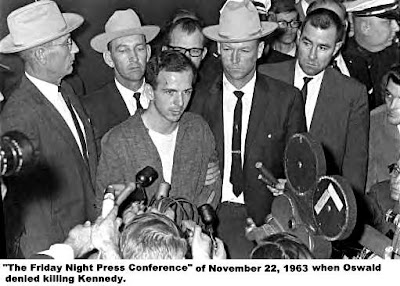
In contrast, nearby forties/fifties shopping centers were a feminine world, designed for suburban housewives and populated by them during the men’s workweek, when fathers left the suburbs.


My father was a businessman, dressing in a business suit (Hart Schaffner and Marx with Dobbs felt hat) who made the daily drive, sometimes in a carpool, to the manly caverns of downtown.
My mom was a stay-at-home housewife during most of those years. During the fifties, her shopping occasionally took her downtown, but she preferred the convenience of the shopping centers, where parking was accessible, fellow shoppers were just like her, and stores were designed to fit the tastes of fifties moms—they had everything she could find downtown and more.
Like other suburbs across America, Dallas exploded with new shopping opportunities—Lochwood, Big Town, Preston Center, Northpark, all with their anchors such as Titche’s, Sangers, Neiman Marcus, Sears, et al. It was not a coincidence that when my mother decided to go back to work—to make some supplementary income for her kids’ college--she chose to work as a part-time credit department clerk at Titche’s in Lochwood. She had been collecting credit cards from the major department stores (VISA and Mastercard were yet to be Discovered), which emancipated her from the scrutiny of weekly allowances and budgets and allowed my family to step forward into debt to take full advantages of Postwar America’s civic obligation to grow the American Pie through consumption.
At first, she had to work an occasional Thursday night and Saturday—those being the only times stores were open outside the Monday-Friday workweek. Blue laws (protecting Sunday rest and small retailers) shut down commerce for a time, but soon large retailers won out to the desires of the suburban populace and were open when suburbanites preferred to make their buying decisions, at night or on weekends. Housewives, working at minimum wage and without benefits, were an ideal manpower. My mom helped her employer by spending much of her check on purchases from Titche’s. She also was full of excitement as she sat with my father at the kitchen table in the evening, talking about her work successes (she was a smart, conscientious worker recognized as a winner by her Titche’s bosses) and able to experience for the first time the adult-like frustrations and challenges of dealing with bosses, coworkers and customers.
See The Consumer's Republic by Liz Cohen for more on this topic.
From The Feminine Mystique, Chapter 9 “The Sexual Sell”
In 1957, a survey told the department stores that their role in this new world was not only to "sell" the housewife but to satisfy her need for "education"--to satisfy the yearning she has, alone in her house, to feel herself a part of the changing world. The store will sell her more, the report said, if it will understand that the real need she is trying to fill by shopping is not anything she can buy there.
“Most women have not only a material need, but a psychological compulsion to visit department stores. They live in comparative isolation. Their vista and experiences are limited. They know that there is a vaster life beyond their horizon and they fear that life will pass them by.
“Department stores break down that isolation. The woman entering a department store suddenly has the feeling she knows what is going on in the world. Department stores, more than magazines, TV, or any other medium of mass communication, are most women's main source of information about the various aspects of life . . .
"There are many needs that the department store must fill,” this report continued. For one, the housewife's "need to learn and to advance in life.”
“We symbolize our social position by the objects with which we surround ourselves. A woman whose husband was making $6,000 a few years ago and is making $10,000 now needs to learn a whole new set of symbols. Department stores are her best teachers of this subject.”
For another, there is the need for achievement, which for the new modern housewife, is primarily filled by a "bargain. . . . Since buying is only the climax of a complicated relationship, based to a large extent on the woman's yearning to know how to be a more attractive woman, a better housewife, a superior mother, etc., use this motivation in all your promotion and advertising. Take every opportunity to explain how your store will help her fulfill her most cherished roles in life . . .”
“If the stores are women's school of life, ads are the textbooks. They have an inexhaustible avidity for these ads which give them the illusion that they are in contact with what is going on in the world of inanimate objects, objects through which they express so much of so many of their drives. . . .”